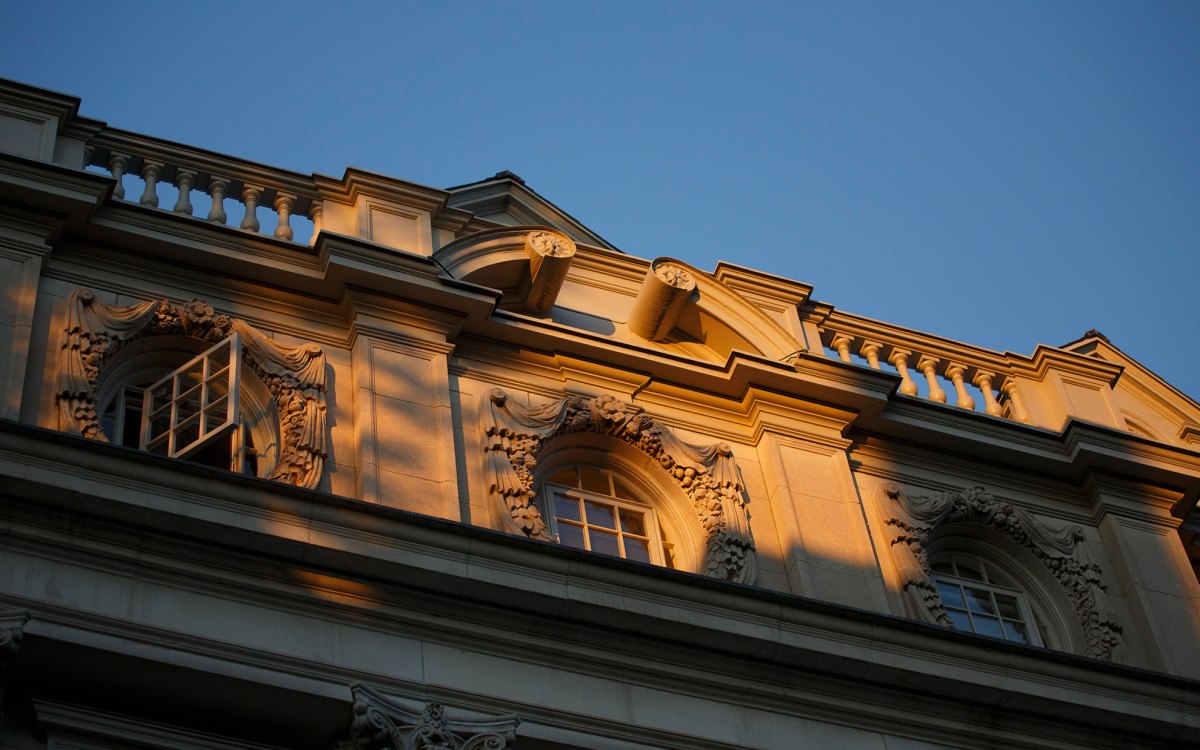Nieman announces its national, international fellows
Twelve U.S. journalists and 13 international journalists were recently appointed to the 65th class of Nieman Fellows. Established in 1938, the Nieman program is the oldest midcareer fellowship for journalists in the world. Fellowships are awarded for an academic year of study in any part of the university to working journalists of accomplishment and promise. More than 1,000 U.S. and international journalists have studied at Harvard as Nieman Fellows.
The new U.S. fellows:
Elizabeth Chandler, investigative reporter, The Charlotte (N.C.) Observer: The legal and moral history of capital punishment and its application in the Southern United States.
Kevin Cullen, projects reporter, The Boston Globe: The roots of international justice and the impact and use of international law in the post-Sept. 11 world.
David Dahl, deputy metro editor, the St. Petersburg (Fla.) Times: Examination of immigration trends and policies in the United States and their influence on national identity.
Amy Driscoll, general assignment reporter, The Miami Herald: The status of women throughout the world, the application of women’s rights and opportunities for self-determination.
Frank Langfitt, Beijing bureau chief, The (Baltimore) Sun: Comparison of the political economies of India and China – their past roots and future potential.
Andrew Martin, city hall reporter, Chicago Tribune: Farming and food – a study of the science, business, and public policy of modern American agriculture.
Bryan Monroe, deputy managing editor, San Jose (Calif.) Mercury News: The creative nature of entrepreneurial leadership and how it can be maintained.
Natalie Pawelski, environmental correspondent, CNN: The political, scientific, and economic roots of U.S. energy policy and the environmental consequences.
Kathleen Phillips, New York political editor, The New York Times: The historic and cultural context of city and nation rebuilding with specific focus on New York City post-Sept. 11, and the war-torn nations of the Balkans.
Reinaldo Ramos, managing editor, Fort Myers (Fla.) News-Press: The growth of the Hispanic population of the United States and its impact on relations with other minority groups, particularly African Americans.
Susan Smith, metro columnist, Austin (Texas) American-Statesman: Gentrification in American cities and its impact upon the people and neighborhoods that are displaced and the services the government and community provide.
Mark Travis, senior editor, the Concord (N.H.) Monitor: The nature of change in a community – how it deals with growth, diversity, and shifts in common culture.
The U.S. journalists were selected by a committee that included Anne Bernays, author and creative writing instructor; David Barron, assistant professor of law; Callie Crossley, an independent news media consultant, Institute of Politics Fellow ’02, and a Nieman Fellow ’83; John Harwood, political editor, The Wall Street Journal and Nieman Fellow ’90; and Bob Giles, committee chair and Nieman Foundation curator.
The new international fellows:
Radka Betcheva (Sofia, Bulgaria), executive producer, Bulgarian National Television: The political and social aspects of enlarging the European Union to strengthen democratic processes and human rights.
Juhong Chen (Guangzhou, China), features editor, Southern Weekend: The impact of China’s entry into the World Trade Organization on urbanization and the transition from a planned to a market economy along with an examination of media industry management.
Raviv Drucker (Tel Aviv, Israel), diplomatic correspondent, IDF Radio: International conflict and resolution negotiation and the impact of the news coverage on efforts to reach settlements.
Dina Fernandez (Guatemala City), Sunday magazine editor/columnist, Prensa Libre: The role of the press in emerging democracies and newly launched free-market economies. Fernandez is a Knight Latin American Fellow, with funding provided by the John S. and James L. Knight Foundation.
John Geddes (Ottawa), Ottawa Editor, MacLeans: The nature and current condition of democracy and its prospects for the future, particularly as related to the arts and culture. Geddes is the Martin Wise Goodman Canadian Nieman Fellow, with funding provided by the Goodman Trust in Canada and the Goodman Fund in the United States.
Shyaka Kanuma (Rwanda), freelance writer for the Mail and Guardian: The cultural and judicial nature of genocide and how legal systems deal with it.
Ana Leglisse (Mexico City), technology reporter, Detras de la Noticia: Trends that are influenced by advances in technology and the impact these advances have on economic and social institutions. Leglisse is a Knight Latin American Fellow, with funding provided by the John S. and James L. Knight Foundation.
Louise Stigsgaard Nissen (Copenhagen, Denmark), foreign correspondent, Danish Broadcasting Corp.: United States history and development of its foreign policy with a focus on the Muslim world and Israel.
Declan Okpalaeke (Lagos, Nigeria), general editor, Insider Communications Ltd.: Environmental and health implications of oil exploration and transmission.
In-Yong Rhee (Seoul, South Korea), news commentator, Munwha Broadcasting: The dynamics of the relationship among the United States, China, Japan, and Russia, its impact on Korea, and the impact of domestic news media on international relations. Funding provided by the Asia Foundation and the Sungkok Journalism Foundation.
Ann Maria Simmons (Johannesburg, South Africa), bureau chief, Los Angeles Times: The evolution of democracies in sub-Sahara, Africa, and exploration into why several of these nations have failed to escape war, disease, and corruption.
Nirupama Subramanian (Colombo, Sri Lanka) correspondent, The Hindu: The role of religion in political conflict, focusing on India and Sri Lanka. Subramanian is the Chiba Nieman Fellow, with funding provided by the Atsuko Chiba Foundation.
Susan Valentine (Cape Town, South Africa), managing editor, Health-E News Service: The roots and nature of narrative story telling including the problems of representation in American history and postcolonial Africa. Funding provided by The United States-South Africa Leadership Development Program.




